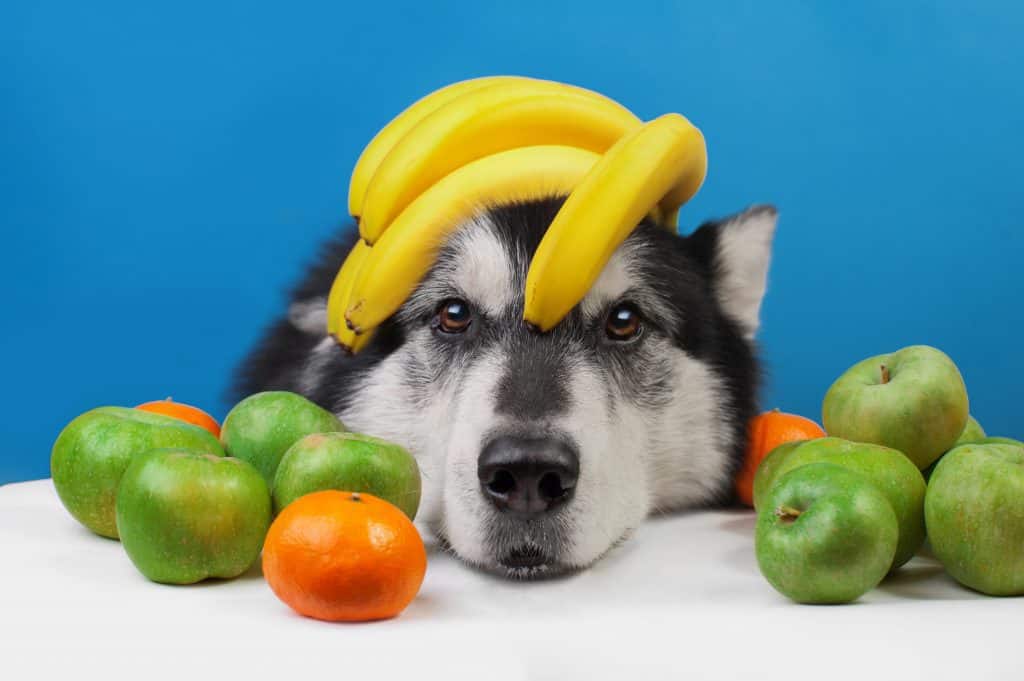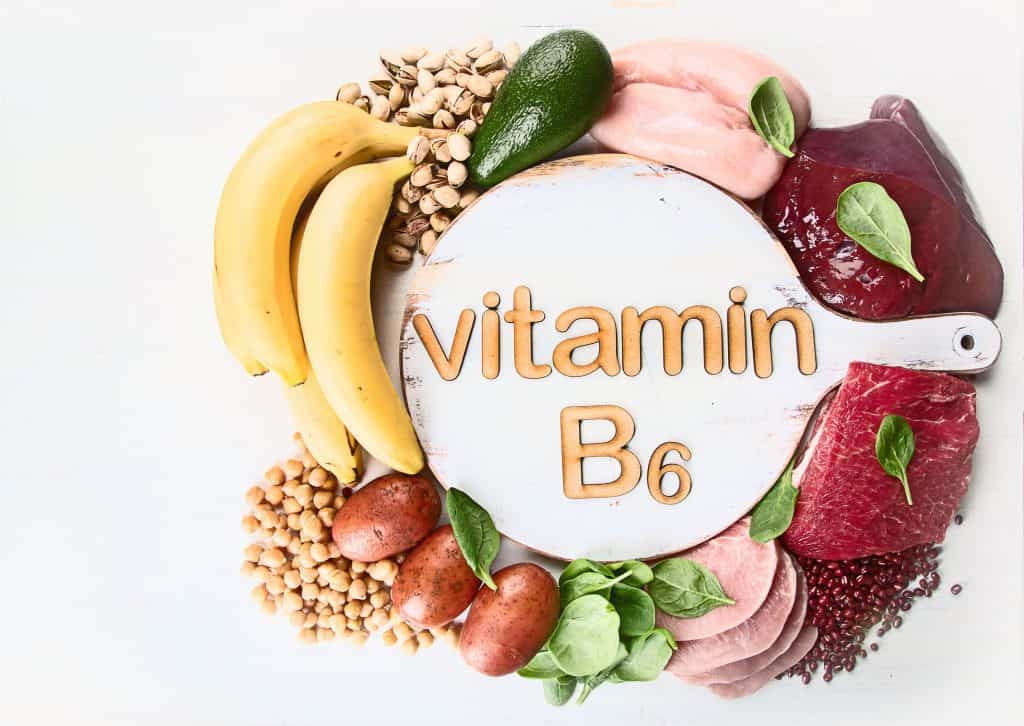Can Huskies Eat Bananas?

If you have a Husky or are looking into getting one, you’re probably researching everything about them, including what they can and can’t eat. Everything you need to know about if Huskies can eat bananas, how often they can eat them, and what other fruits to avoid is laid out for you here.
So, can huskies eat bananas? Huskies can eat and enjoy bananas in moderation. Bananas are rich in potassium, fiber, magnesium, vitamin B6, vitamin C, and vitamin E. These are all important nutrients for a Husky’s growth and development. They can affect your dog’s digestion if they eat them too much though.
Huskies are bulkier dogs that can have quite the appetite. Dry food for your husky is a great way to get them the main source of nutrition, but adding other food items will help supplement their diet and keep their bodies healthy. Some fruits and vegetables and fruits can be toxic to your Husky, but luckily, bananas are not one of them!
Potassium
Bananas have many nutrients that can be beneficial to the overall health of your Husky. First, bananas are high in potassium, which is found in many natural foods.
Potassium helps promote muscle growth and strength, which is important for your Husky to exercise and grow. As such active dog breeds, muscle health is crucial to them!
Potassium also helps to break down fats and carbs, so your husky can digest and absorb nutrients better after meals. Potassium in moderation will also help to boost the brain functions of your Husky.
This increases their ability to learn and remember tricks and commands better. They’ll feel more alert and will learn faster if they have good levels of potassium. To cap it all off, potassium helps
Vitamin C
Vitamin C is also found in bananas. It is
Vitamin C deficient dogs have a great deal of emotional and physical stress. You and your dog will both be miserable if they don’t get enough of this vitamin! Beyond just bananas, vitamin C is found in other foods such as pineapples, strawberries, sweet yellow peppers,
Fiber
Fiber is an essential nutrient for a Husky’s digestive system. Fiber can help your dog maintain a healthy weight. It also lessens their risk for constipation, diabetes, and diarrhea. It is found in other foods such as apples, brown rice, many vegetables, and pumpkins.
Magnesium
Magnesium is the second most abundant mineral found in Husky’s bodies after potassium. It’s also vital to their ability to function. Deficiencies in magnesium include muscle weakness, trouble walking, muscle pain
Considering the big positive impact magnesium has on Huskies, it should be included in their regular diet. Magnesium is offered in other foods such as whole grains, almonds, cashews, quinoa and edamame.
Vitamin B6

Vitamin B6 is found in bananas and can be extremely healthy for your dog’s health. Vitamin B6 promotes red cell production, which is necessary for healthy brain function. B6 plays a very important role in making proteins, neurotransmitters, and hormones in Huskies.
Deficiency in B6 is linked to a risk of heart disease. B6 works to stabilize blood sugar levels and thyroid issues, helping dogs with diabetes or insulin resistance problems.
Vitamin B6 is also found in other foods such as nutritional yeast, fish, meat, eggs, spinach, carrots, broccoli, brown rice, whole grains, avocados, soybean, walnuts, lentils, lima beans, wheat, green foods, wheat germ, and alfalfa.
Vitamin E
Lastly, the last nutrient found in bananas is Vitamin E. Vitamin E helps to promote a thick, healthy coat in Huskies. They have naturally thick coats, but having vitamin E can help ensure it will be healthy and shiny.
Vitamin E is a natural antioxidant which can help boost the immune system and protect from infection It is good for Husky’s eyesight and can reduce the likeliness of getting cataracts later on. Fertility problems are known to arise when there is a lack of vitamin E in the diet of a Husky.
Vitamin E can help the blood circulate properly, helping the cardiovascular health of your Husky. It can be found in other foods such as, green leafy vegetables, olives, coconut, and sunflower oils.
How Often Should You Feed Your Husky Bananas?
Bananas can be beneficial to your dog’s health, but you shouldn’t overdo it! Too much of anything is bad news. Feeding your Husky bananas too often can lead to an unbalanced diet and constipation issues as well as trouble digesting other foods. Because bananas are so soft, your husky might not be able to deal with tougher foods if they eat bananas very often.
Larger breeds such as Huskies can be fed somewhere between a half of a banana and a full banana once per day. This should be the most that your dog is fed per day. Bananas should be used more of a treat rather than a meal replacement. You want your Husky to have a balanced diet, and by giving a banana as a treat will help maintain a healthy diet.
Side Effects of Bananas in a Husky’s Diet
Now that we’ve highlighted all of the benefits of incorporating eating bananas in a Huskies diet, the side effects will now be outlined. Bananas are a very healthy snack for dogs, but too much can be considered unhealthy. Why is that?
Bananas have high amount of sugars in them which should not be consumed in large doses by dogs. It can effect your dog’s blood sugar levels in a negative way and cause longer term issues associated with the liver.
Bananas cause constipation, especially if they are leaning more towards the unripe side. If it can happen to you, it can happen to your dog. Constipation can be extremely painful and uncomfortable for your pup. Large amounts of potassium can’t be well handled by dogs.
Bananas should be given as a treat, and only in small amounts. It’s best to not go bananas on bananas! Monitor the intake your Husky is getting daily.
It is also important to notice changes that may be caused by diet. If your dog seems constipated, throws up or changes their appetite, stay away from bananas for a while and see if things improve. If things improve, it may have been caused by the banana, and if things do not improve, seek medical attention.
Foods to Avoid
Bananas are shown to have health benefits for Huskies, but what about other fruits? First, stay as far away as you can from cherries. Cherries are toxic to dogs and cats. Raisins and grapes have been shown to cause kidney damage and need to be completely avoided when it comes to your dog.
Citrus fruits such as limes, grapefruit, lemon, and persimmons are high in acid levels and can cause an upset stomach in your Huskies.
Avocado is a human favorite paired with chips or on toast but should be avoided for your furry friend. Avocado trees contain persin in the actual fruit as well as in the bark and the leaves. Persin is mostly harmless to humans, but dogs can develop harmful effects such as vomit, difficulty breathing
In conclusion, Huskies require a balanced diet, and yes, bananas can be incorporated in that diet. Should bananas be given more than once per day? Probably not. Giving your dog a half of a banana to a full banana once per day is sufficient enough to provide it the nutrients it needs without causing any negative side effects.
There are many other healthy fruits and vegetables that can be given to your dog to help supplement a healthy and balanced diet, but it is important to be aware of the foods that are toxic to dogs.
Related Questions
What vegetables can Huskies eat? Most vegetables are okay for Huskies to eat including broccoli, cabbage, carrots, peas, spinach, pumpkin, sweet potato, and zucchini.
Can my Husky develop a food allergy? Food allergies can develop when Huskies have reactions to ingredients in dog food such as wheat, soy and, corn.
